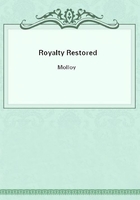
第135章 CHAPTER XXII.(2)
And amongst others who sought his majesty's presence was the Archbishop of Canterbury, together with the Bishops of London, Durham, Ely, and Bath and Wells; all being anxious to render spiritual services to the king. Of these good men, Charles liked best Dr. Ken, Bishop of Bath and Wells, having most faith in his honesty. For, when his lordship was a prebend of Winchester, it had happened Charles passed through that city, accompanied by Nell Gwynn, when Dr. Ken refused to receive her beneath his roof even at the king's request. This proof of integrity so pleased his majesty, that he gave him the next vacant bishopric by way of reward. And now, his lordship being at hand, he read prayers for the Sick from out the Common Prayer Book for his benefit, until coming to that part where the dying are exhorted to make confession of their sins, when the bishop paused and said such was not obligatory. He then asked his majesty if he were sorry for the iniquities of his life? when the sick man, whose heart was exceeding heavy, replied he was; whereon the bishop pronounced absolution, and asked him if he would receive the Sacrament. To this Charles made no reply, until the same question had been repeated several times, when his majesty answered he would think of it.
The Duke of York, who stood by the while, noting the king's answer, and aware of his tendencies towards Catholicism, bade those who had gathered round stand aside; and then, bending over him, asked in a low tone if he might send for a priest. A look of unspeakable relief came into the king's face, and he answered, "For God's sake do, brother, and lose no time." Then another thought flashing across his mind, he said, "But will not this expose you to much danger?" James made answer, "Though it cost me my life I will bring you a priest." He then hurried into the next room, where, among all the courtiers, he could find no man he could trust, save a foreigner, one Count Castelmachlor.
Calling him aside, he secretly despatched him in search of a priest.
Between seven and eight o'clock that evening, Father Huddleston, the Benedictine friar who had aided the king's escape after the battle of Worcester, awaited at the queen's back stairs the signal to appear in his majesty's presence. The duke being made aware of the fact, announced it to the king, who thereon ordered all in his room to withdraw; but James, mindful that slander might afterwards charge him with killing his brother, begged the Earl of Bath, the lord of the bedchamber then in waiting, and the Earl of Feversham, captain of the guard, might stay--saying to the king it was not fitting he should be unattended in his weak condition. These gentlemen therefore remained. And no sooner had all others departed than the monk was admitted by a private entrance to the chamber. The king received him with great joy and satisfaction, stating he was anxious to die in the communion of the catholic church, and declaring he was sorry for the wrongs of his past life, which he yet hoped might be pardoned through the merits of Christ.
He then, as we read in the Stuart Papers, "with exceeding compunction and tenderness of heart," made an exact confession of his sins, after which he repeated an act of contrition, and received absolution. He next desired to have the other Sacraments of the church proper to his condition administered to him: on which the Benedictine asked if he desired to receive the Eucharist; eagerly he replied, "If I am worthy pray fail not to let me have it." Then Father Huddleston, after some exhortation, prepared to give him the Sacrament; when the dying man, struggling to raise himself, exclaimed, "Let me meet my heavenly Lord in a better posture than lying in bed." But the priest begged he would not move, and then gave him the Communion, which he received with every sign of fervour. And for some time he prayed earnestly, the monk and the duke kneeling by the while, silence obtaining in the room. This was presently broken by the sad and solemn tones of the priest's voice, reading a commendation of the soul to its Maker: the which being ended, the Benedictine, with tears in his eyes, took leave of his majesty. "Ah," said Charles, "you once saved my body; you have now saved my soul." Then the monk gave him his benediction, and departed as quietly as he had come.
Then those waiting without were once more admitted to the room, when Charles nerved himself to take a sad farewell of those around him. He first publicly thanked his brother for the services and affection he had ever rendered him through life, and extolled his obedience and submission to his commands. Giving him his keys, he said he had left him all he possessed, and prayed God would bless him with a happy and prosperous reign.